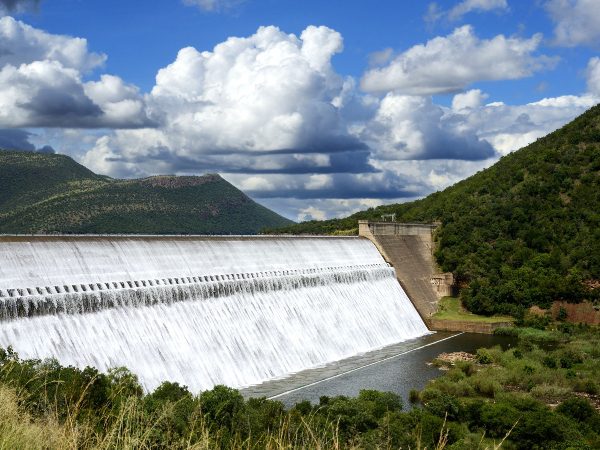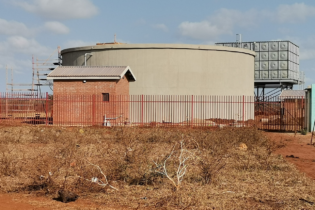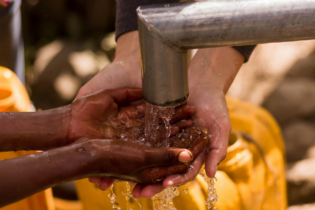Senzo Mchunu, Minister of the Department of Water and Sanitation (DWS), addressed delegates at the Biennial WISA Conference 2022. Going forward, he maintains that a larger focus must be placed on assisting municipalities with the delivery of water and sanitation services.
“DWS will no longer exclusively concentrate on bulk water and water resource management at the exclusion of water services management. We will strengthen our role in regulating, supporting and intervening in municipalities where water and sanitation services are deteriorating. We have realised that community protests and complaints around water services have occurred as a result of the DWS and water boards directing their sole attention on water resource management and leaving reticulation exclusively to municipalities. Some municipality’s capacity to supply water and sanitation to households has declined. The DWS will not abandon its focus on bulk water and water resource management, but seeks to balance its priorities with water services management,” he says. Key priority projects A lot of emphasis has been placed on key priority projects – at different stages of development – that will ensure water security not only at a national level but inclusive of provinces, metros and district municipalities. “Many municipalities and the DWS have a poor record of under expenditure and delays on their capital projects. I have implemented corrective measures that include hands on monitoring of the progress of these projects as well as budget versus expenditure. We need to ensure that project planning takes place the year before it is implemented, ensuring that projects are ready when the financial year begins,” states Mchunu. An Infrastructure Procurement Strategy has been developed by the DWS to line up with National Treasury’s framework for Infrastructure Delivery and Procurement Management to enable quicker, smarter and more effective infrastructure procurement. There will also be a zero-tolerance approach to fraud and corruption in the procurement and management of projects. Corruption in water sector will be fought across all levels of government. Key priority projects include:- Limpopo Province
- Giyani Project
- Olifants Water Resource Management Module (OMM Programme)
- Masodi Wastewater Treatment Works Project
- Olifantspoort and Ebenezer Water Supply Schemes (O&E WSS)
- Western Cape Province
- Raising of the dam in Clanwilliam
- Greater Brandvlei Scheme – Holsloot Feeder Canal
- KwaZulu Natal Province
- The Umkhomazi Water Project
- Possible dams for upper and lower Tugela for local communities – Msinga, Nkandla, and Mandini Dam Projects
- Possible dams on Umfolozi system to supply Ulundi and Nongoma and Mfolozi River Regional Water Supply Scheme
- Free State Province
- Greater Mangaung Water Augmentation Project – Xhariep Pipeline Feasibility Study
- Maluti-a-Phofung LM Interventions
- Gauteng Province
- Lesotho Water Highlands Scheme Phase 2
- Section 63 Vaal River Intervention Project
- Eastern Cape Province
- Nooitgedagt Coega Low Level Scheme (NCLLS) Phase 3
- Mzimvubu Water Project
- Augmentation of the James Kleynhans Bulk Water Supply – Makhanda
- Mpumalanga
- Thembisile/Loskop Regional Bulk Water Supply Project
- Northern Cape Province
- Vaal Gamara Regional Water Supply Scheme

The Water Trading Entity (WTE) at DWS is currently owed R23 billion and the debt is rising due to non-payment from municipalities and water boards, who owe WTE R8.5 billion and R7.6 billion respectively. Municipalities owe water boards over R14 billion.
Mchunu also highlighted the importance of improved billing and revenue collection across water chain. “This rising debt declines government’s credit ratings and borrowing capacity that results in inadequate investments in infrastructure. Weak revenue collection also results in inadequate funding for operations and maintenance that result in unreliable service that negatively impact water quality and quantity, health, and the environment.” Water Services Improvement Programme The DWS is also putting in place a Water Services Improvement Programme to strengthen its support and intervention at municipal level, making such measures more consistent than the current ad-hoc approach. The programme consists of the four key elements:- In terms of the Water Services Act, DWS will issue updated and more comprehensive norms and standards for water and sanitation services.
- A national regulatory dashboard will be created showing the extent of compliance with national norms and standards for all WSAs. This will use existing monitoring information like drop reports, national treasury reports and Cogta reports.
- Regional support and intervention plans will be developed based on the evidence in the national regulatory dashboard in consultation with provincial government, municipalities and district development model structures.
- Support and intervention plans will draw on a range of support programmes, which will be developed at national level and draw on the capacity of the DWS regional offices, water boards and private sector.
| Programme | Description |
| Non-revenue water | A comprehensive water conservation, water demand management and cost recovery programme focussing on reducing losses and over consumption and improving cost recovery. The private sector obtains a return on investment from savings through reducing losses or from increases in revenue. |
| Management contract | Programme in which the private sector overall management and support to a water and sanitation function in a municipality. The private sector obtains a return on investment from savings through efficiency improvements or from increased revenue. |
| Wastewater treatment | This will assist municipalities to upgrade and refurbish their wastewater treatment facilities. Funding and implementation will be done through a private sector participation model which leverages a portion of grant funding. |
| Water reuse | By focussing on further treatment of municipal wastewater to enable it to be sold for potable, industrial or agricultural use. Related resource recovery includes energy generation and sludge beneficiation. The private sector obtains return of investment from sale of reuse, electricity generation and sludge beneficiation. |
| Seawater desalination | Focus on independent water production by producing potable water by seawater desalination. Private sector obtains a return on investment through the sale of desalinated water to municipalities and other customers. |







